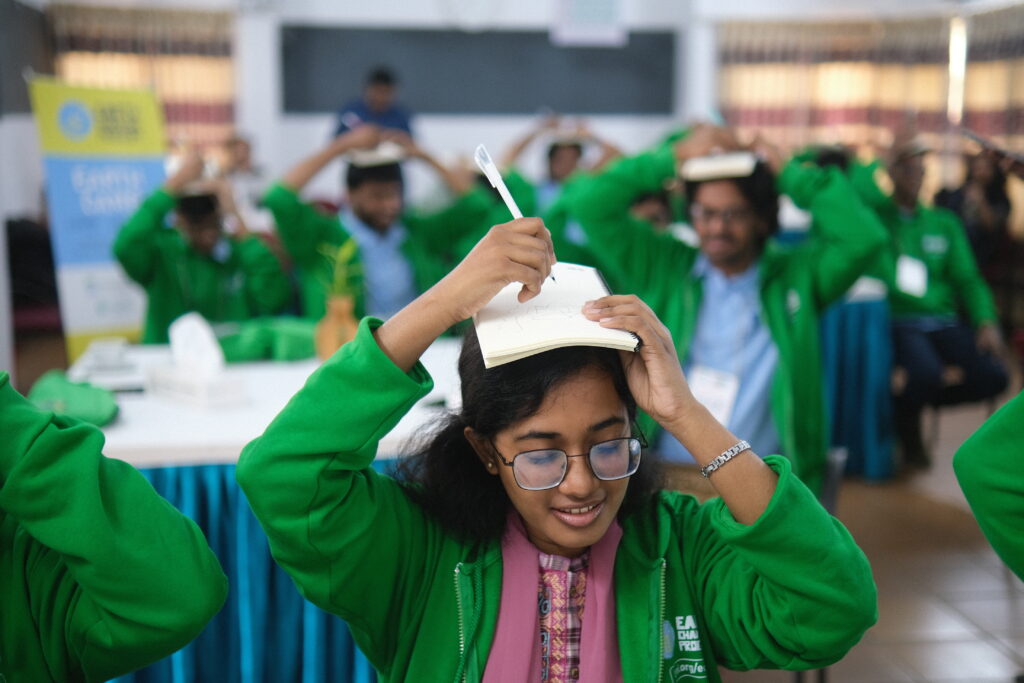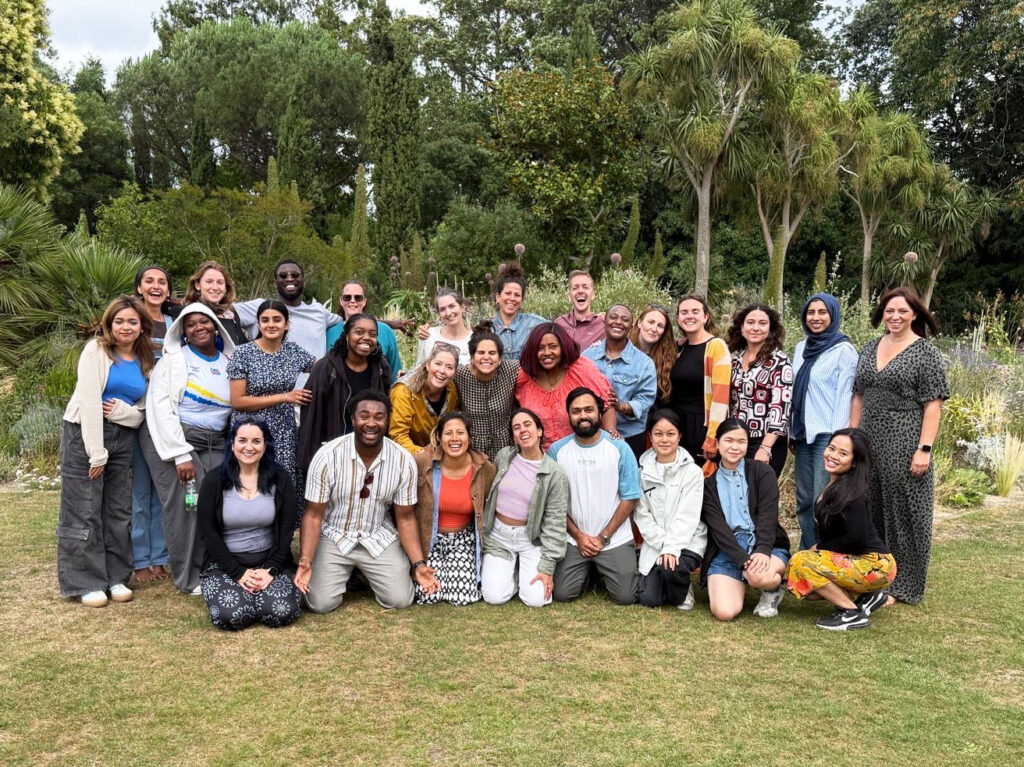South London Changemakers: Jo Scott, When We Talk We Heal
This conversation is part of South London Changemakers, a series celebrating the impact of the Community Leadership in Motion (CLiM) programme, that funded community projects across Lambeth and Southwark. Learn more about CLiM here.
In this conversation, we sat down with Jo Scott, Founder of When We Talk We Heal, a safe space that brings communities together, to help alleviate daily stresses and improve mental health.
We spoke about what inspired her to start When We Talk We Heal, the challenges she’s faced setting up a grassroots organisation and her hopes and dreams for the future.
Content warning: This blog contains references to mental health. If you are struggling with your mental health, please see the below resources:
Can you tell us a bit about your project and what inspired you to start it?
I started When We Talk We Heal because I was struggling with my own traumas and wasn’t able to speak about them out loud. When I started talking, it helped me to understand the things that had happened in my past.
After realising how transformative talking can be, I decided to start a talk show, to start conversations about mental health and wellbeing. I got someone to film and I started doing Instagram lives and connecting with people around the world. Since then, I’ve had hundreds of conversations and have had counsellors and other mental health professionals on as guests.
It takes a long time for people to get access to a therapist through the NHS, if they get one at all. I’m not a qualified health professional, but I do think there’s a lot that we can be doing for ourselves by just being more open and creating spaces to talk and share knowledge with each other.
When We Talk We Health has grown a lot since it started. I’ve started doing in-person healing workshops and open mic poetry nights. I’m currently recording a podcast, with Amy from Feathers Up too.
What’s been the impact of your project so far?
It’s been amazing. I’ve seen the people that have attended a session or an open mic night really change and want to start doing things.
When I started doing this, we were just coming out of COVID-19 and a lot of people were really suffering the impacts of the pandemic, and didn’t want to do anything. But over the last few years, I’ve really seen how When We Talk We Heal has inspired people to take action in their lives, and want to start doing things, not just for themselves but for others too.
What are the challenges that you face as a community project?
It’s been very challenging at times, because people see me as a mental health professional when I’m not, and I can only do so much. I’m just one person and I can’t help everyone. Running a project like this is a big responsibility and you’re not always equipped to deal with everyone’s problems. But I help signpost people to other resources and professional help.
The other thing that’s been difficult is building a team. Sometimes people come to help for a while but then they move on, which is hard when your heart and soul are in the project and you want people to stay. It takes time and resources to train others up. But that’s the reality when people are doing it in their free time.
How was your experience being part of CLiM?
I received funding through the CLiM programme, which was extremely helpful. Without that funding, I don’t know where we would be, because everything’s so costly now.
I’d never applied for funding before CLiM. I just didn’t have the information about it, and I knew it would be difficult if we weren’t a CIC or a charity. So I just thought, ok, it’s not going to happen for me for a while, until I get to that stage.
But I got it through CLiM, and it’s allowed me to book venues that I could only look at before. It’s amazing to have a physical space to bring people together and that’s where I hold the open mic nights.
The leadership programme was also really helpful. It helped me see where I needed to build my leadership skills and I learnt more about developing a strategy. I think most of all, it just taught me to be calm and take it a step at a time. When you’re excited about your project you just want to jump straight into it. But I learnt the power of thinking it through and really planning it out before you start.
Through CLiM, I’ve found a community that is literally on my doorstep. I would never have met them if I hadn’t been involved with the programme, so I’m really grateful for that.
How have you found being fiscally hosted by The Social Change Nest?
I’d never heard of fiscal hosting before CLiM. But it’s very straightforward. Once I learnt how to use the Open Collective platform, it was easy to set up our page and manage our money. There was always someone from The Social Change Nest that we could call or email to speak to along the way. So if we were stuck, we were never confused for long.
What are your hopes and dreams for the future?
My ultimate goal for When We Talk We Health is to do a healing retreat. Maybe a weekend or a week away with people that are ready to become the greatest versions of themselves, and find methods to deal with their mental health struggles.
I want to continue to do my open mic nights and do more healing workshops and also finish the podcast. I want to have as many different platforms and channels as possible, so that I’m always available where people are, and I can reach people that need support.
**
If you want to support When We Talk We Heal, you can donate via Open Collective here.

- Blogs
Are you a funder looking to support grassroots groups?
Book an intro call with our team.

